Before we start talking about Amplitude and its alternative tools, it's essential to understand what product analytics is and how it works. Product analytics is the data showing how and which of your users interact with the product. It helps to track, visualize and analyze user interaction data.
In this article, we'll touch upon Amplitude Analytics and alternatives you can use for your product analytics set up.
- What is Amplitude used for?
- Amplitude pricing
- Amplitude Analytics Reviews
- Amplitude Analytics alternatives
- What to look for in an analytics tool
- Final Thoughts
What is Amplitude used for?
Amplitude is a product analytics tool and an event-tracking platform founded in 2012 by Spenser Skates and Curtis Liu.
Amplitude is primarily used for customer journey analytics, digital analytics, mobile analytics, product intelligence, and product analytics. It's a complex product with a hefty price tag focused on larger organizations.
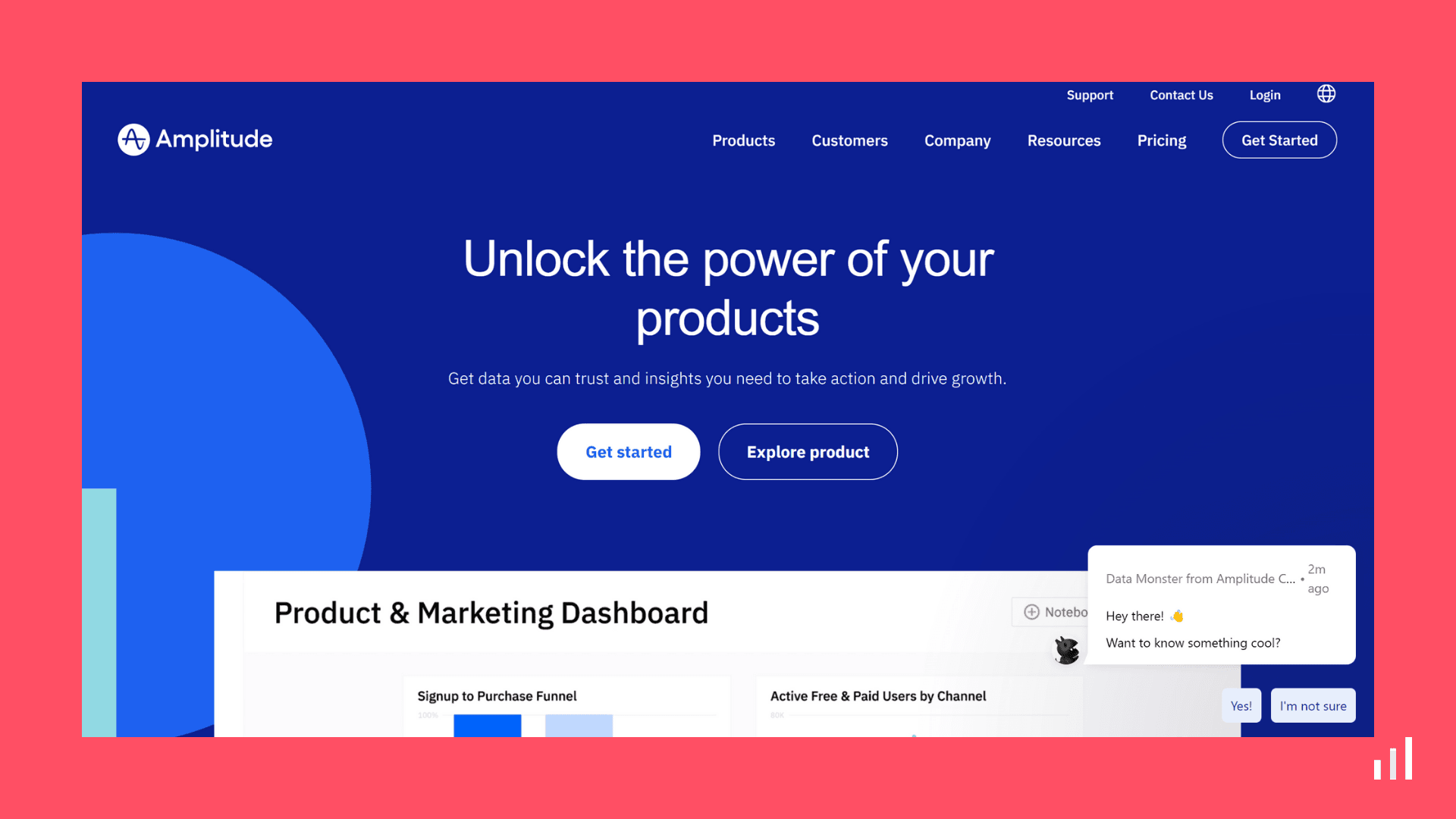
Amplitude pricing
As you'd see in the image above, Amplitude doesn't mention their pricing on their website because they tailor plans based on customer demand.
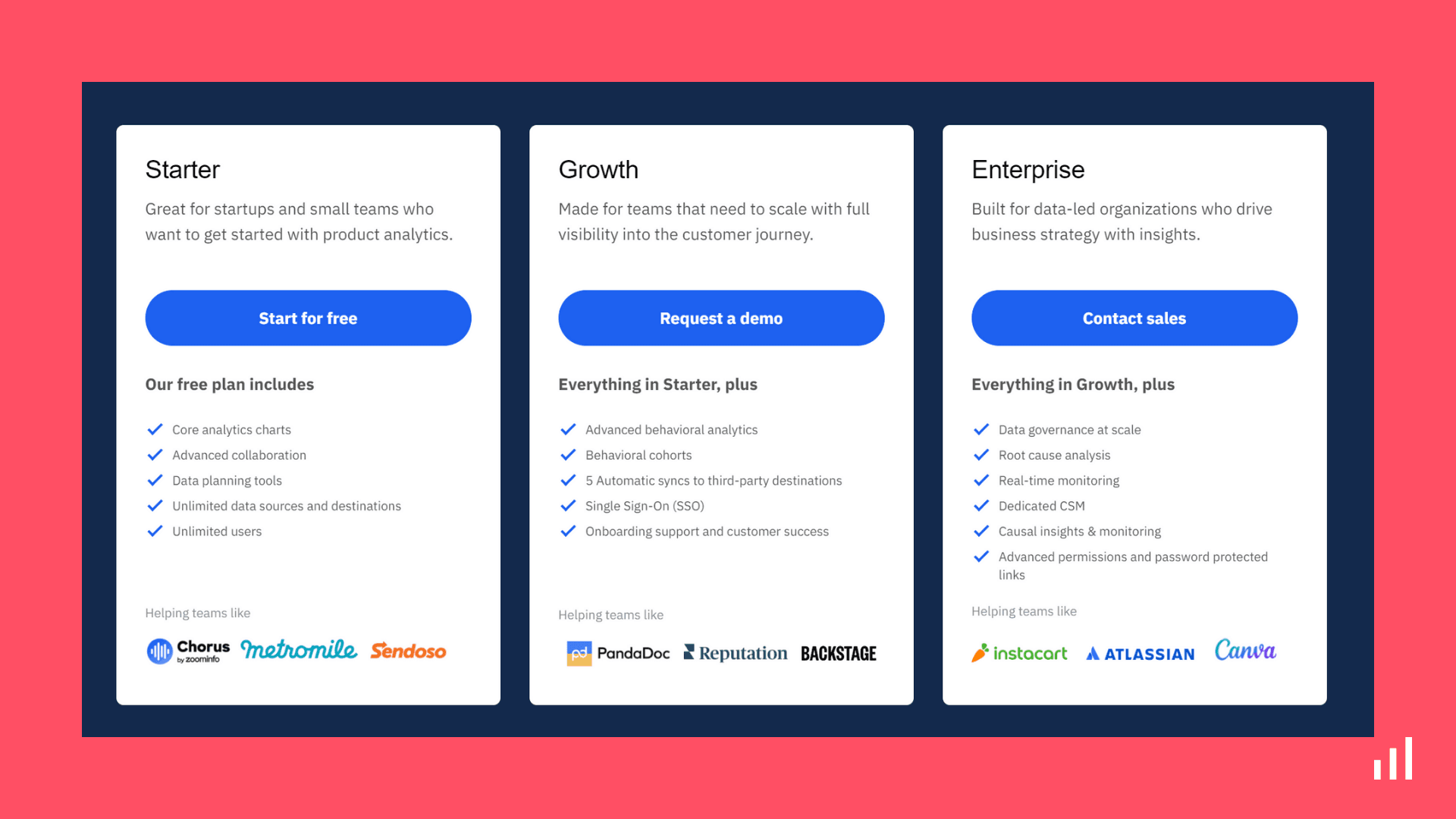
The price for their most affordable plan used to be ~$12,000 per year in 2020, which has reportedly increased to ~$25,000 per year.
Amplitude Analytics Reviews
What do you like best about Amplitude Analytics?
I really like the UX/UI Amplitude uses to visualize the data of your app allowing you to create correlated dashboards and charts that show you in a second key performance insights.
I also like the simplicity they have used for non-data people to manage and extract useful indicators about the performance and user experience of your app.
What do you dislike about Amplitude Analytics?
In my opinion Amplitude could make it a little bit easier to create and define events so it is more simple to interrelate different events in funnels specially. I find it somehow too techie for a business person to implement it from scratch.
What problems is Amplitude Analytics solving and how is that benefiting you?
Amplitude allows me to avoid missing vital information about my app and my users' experience from small bugs and problems that can be structured to different user experience flows that we hadn't thought in the first place.
Amplitude Analytics alternatives
Though Amplitude is an excellent product analytics tool, it has several flaws that have made users search for alternatives.
Expensive: One major issue with Amplitude is that it's costly, and only some businesses can afford $25,000 annually for analytics.
Learning Curve: Amplitude is meant to be used in enterprises with dedicated departments for product management. It's a complex product meant to be used by product teams only; others would need help understanding and using it.
Lets check out some alternatives!
Simple Analytics (easy to use and predictable pricing)
Simple Analytics is a straightforward analytics tool that gives you the insights you need while being 100% GDPR-compliant. It's affordable tool that doubles as a web -and product analytics tool.
Pros of using Simple Analytics
- Simplified UI - Simple Analytics offers a straightforward user interface that makes analysis easier. It's 10x easier to work with than GA4. Checkout the public dashboard to see what that looks like.
- Affordable Pricing - Simple Analytics starts at a reasonable price.
- No cookie banner - Simple Analytics gives you the insights you need without using cookies or trackers. Hence, no need for an annoying cookiebanner on your website.
- Chat with your analytics - Simple Analytics AI is the latest features that lets you chat with your analytics and get insights directly.
The user interface of Simple Analytics is made to look simple and easy to understand so everyone, be it the founder or marketing teams, can use it easily. A Product Manager may need a few more screens, but that is something that can be quickly built with goals.
Pricing of Simple Analytics
Simple Analytics is one of the most cost-efficient tools available in its segment. The product is perfect for businesses. It caters to companies and has plans for individuals and students. Therefore it ensures that the best features are available at a very reasonable price.
The pricing of Simple Analytics starts at a low $9/month, making it a pocket-friendly tool for all businesses.
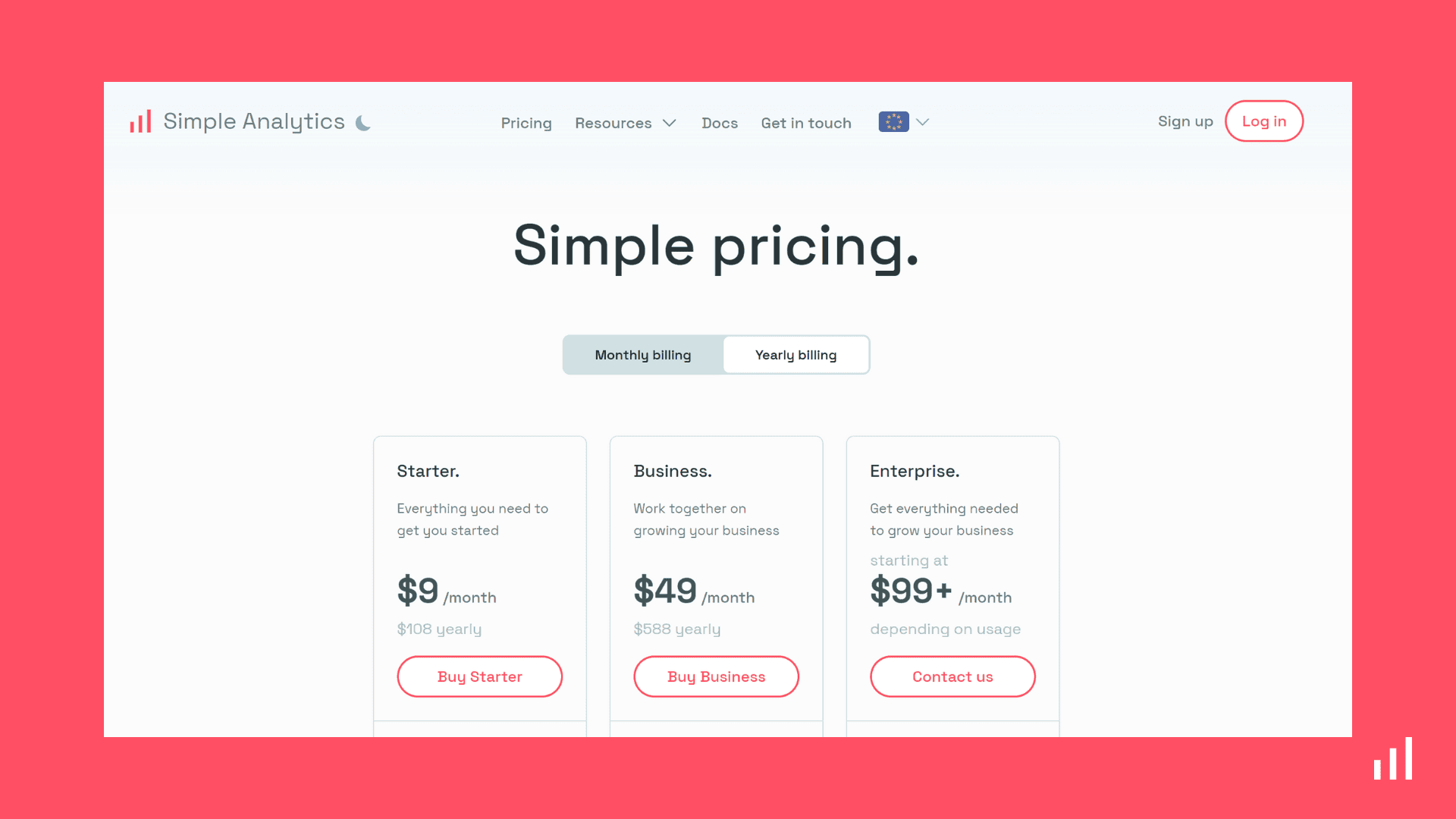
Pendo
Pendo is a product analytics tool that enables product managers to proactively engage with customers and understand how their product is being used. Also, yes, tools like Pendo are better to be used by a PM and not the best choice for solopreneurs or small teams.
It also has many features that help you provide personalized user onboarding and in-app training, which is an added feature of Pendo. Furthermore, these features are available on mobile too
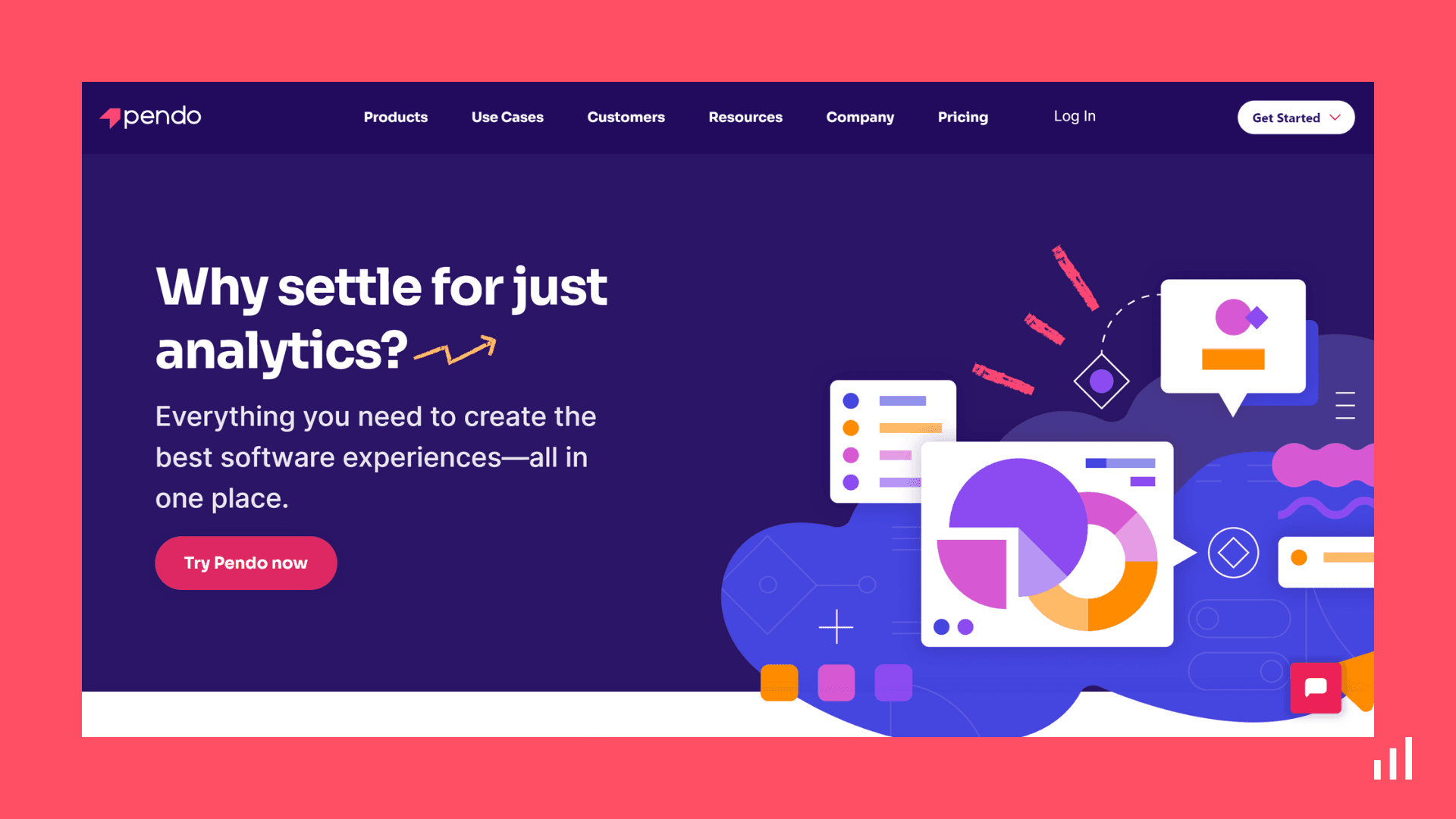
Pros
- Provides additional features such as an onboarding tool for SaaS
- Provides detailed product analytics
Cons
- Too many features make the UI cluttered
- Expensive tool
Pricing
Pendo is a software targeted towards enterprises, which also shows up in its pricing. You’ll have to pay $7000/year for up to 2000 monthly active users.
It’s indeed pricey and certainly not recommended if you are just starting. Better to stick to something affordable and simple.
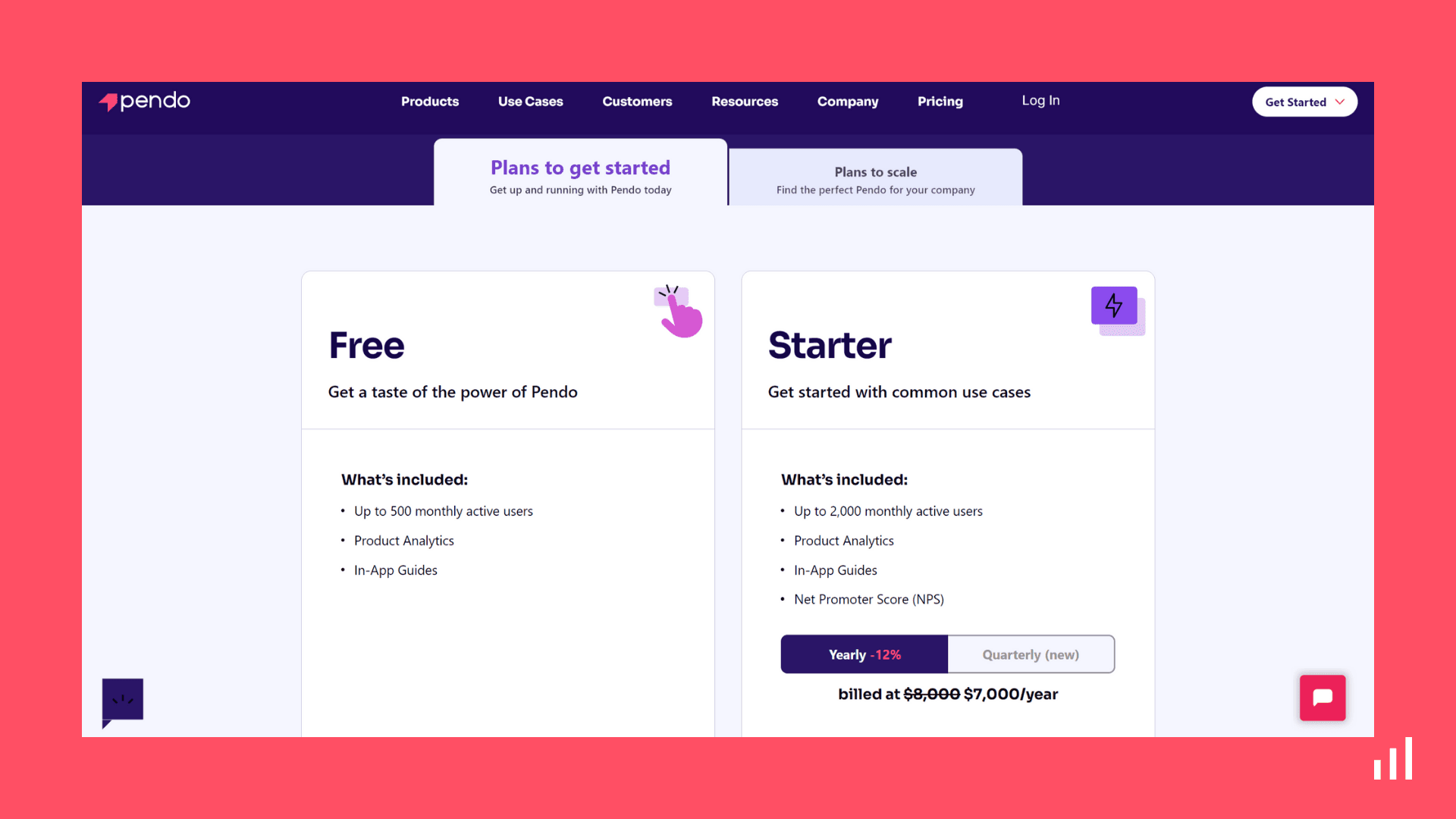
FullStory
FullStory is a digital experience analytics platform that allows you to track user behavior and interactions on their websites or mobile applications. It also provides real-time analytics and insights that help companies to improve customer experiences and identify potential issues.
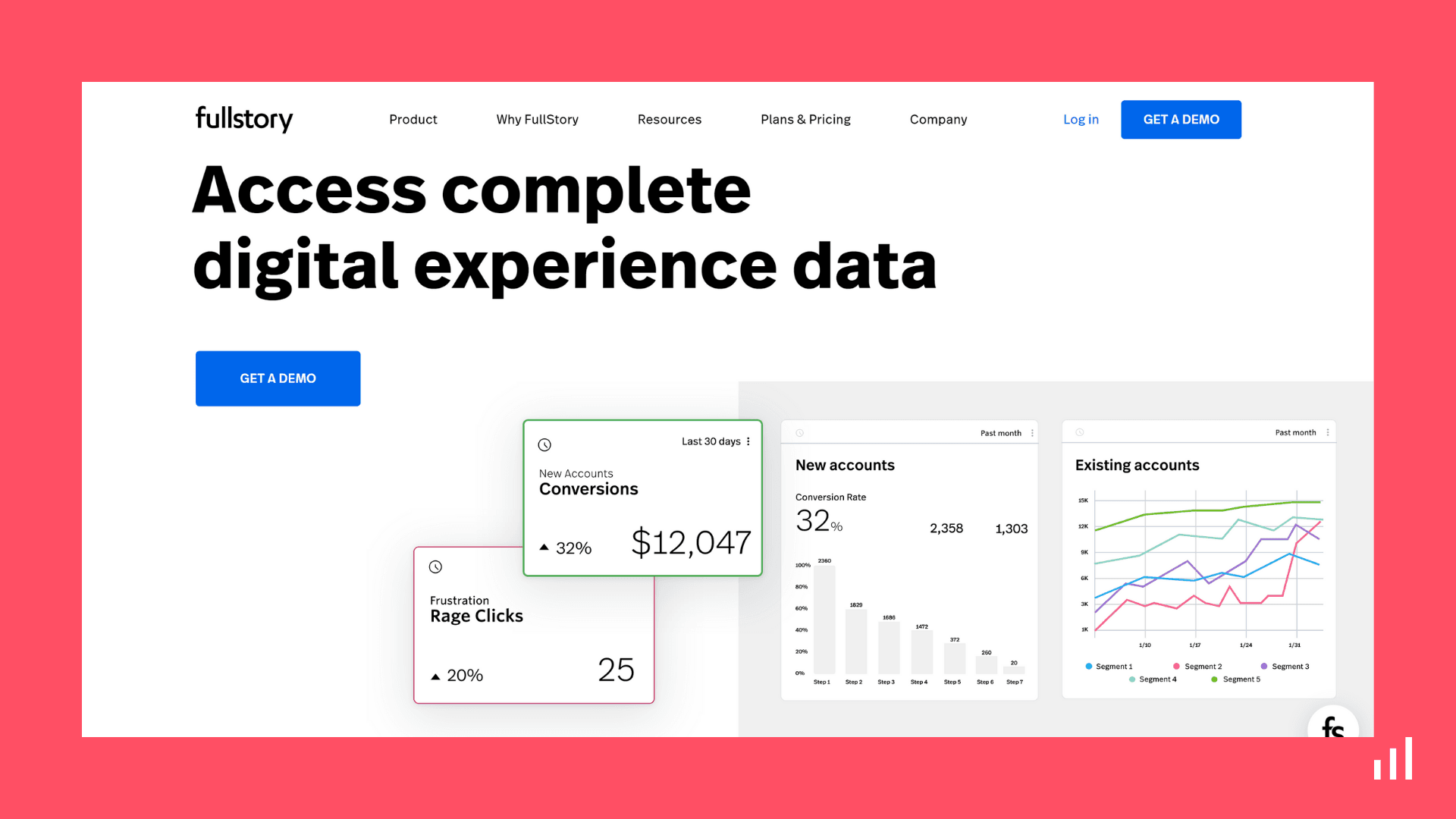
Pros
- Provides session replay and usage heatmaps
- Auto captures product metrics and events
Cons
- Still expensive to most businesses
- UI can be hard to navigate
Pricing of FullStory
FullStory offers three plans, but the pricing isn’t mentioned on their pricing page; however, according to a Capiche and this Twitter thread, the pricing can range in-between $247/month to $850/month based on requirements.
They also have a startup program that reduces the price to ~ $1000/year.
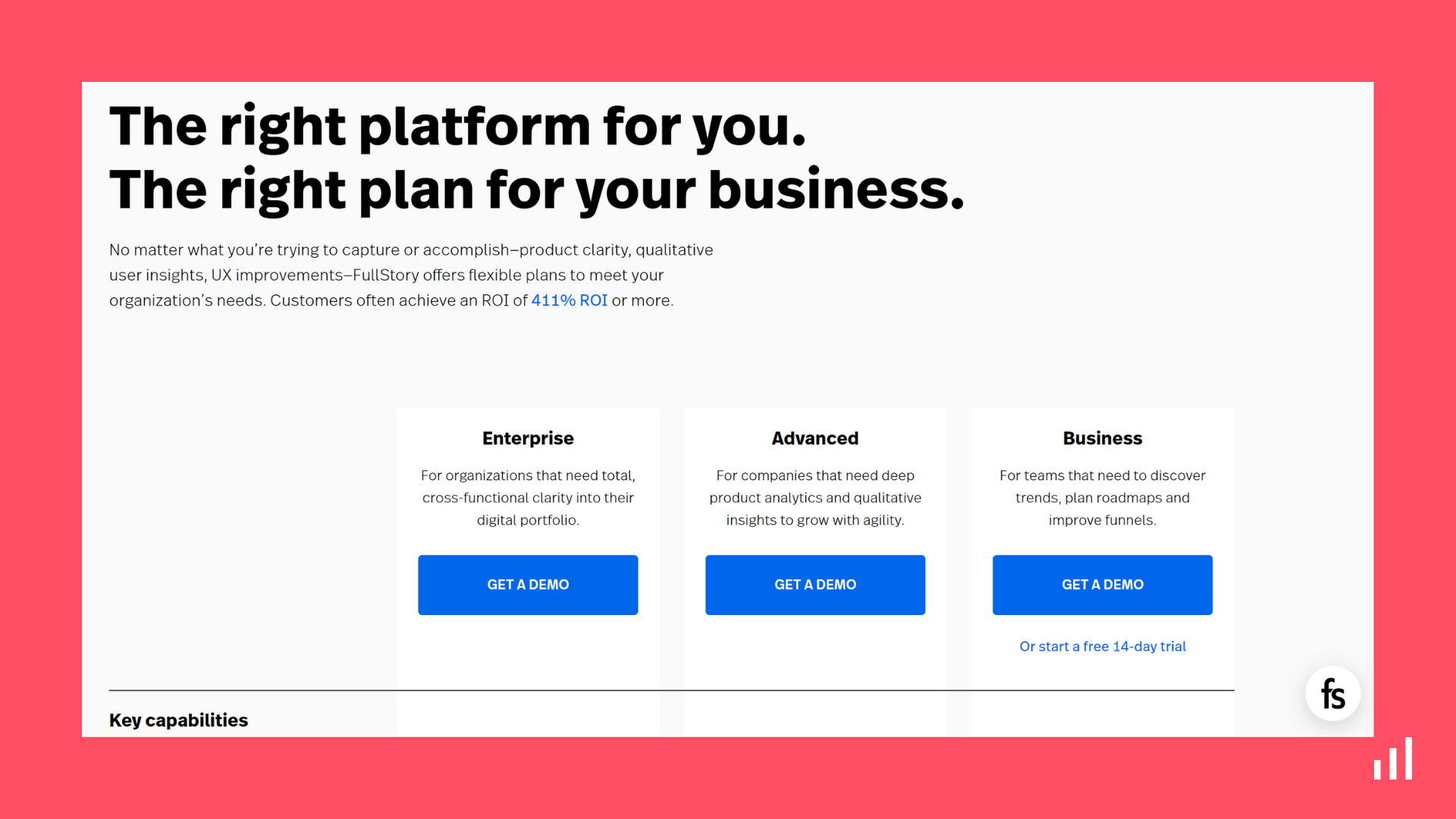
Heap
Heap is a product analytics tool with features like session replay, heatmap, and user journey. Its primary role is to be the single source of truth for all product-related metrics.
Anyone using Heap can customize it as per their requirements, as it allows users to create custom dashboards and charts. Heap is widely used in the industry for funnel optimization and to improve product adoption.
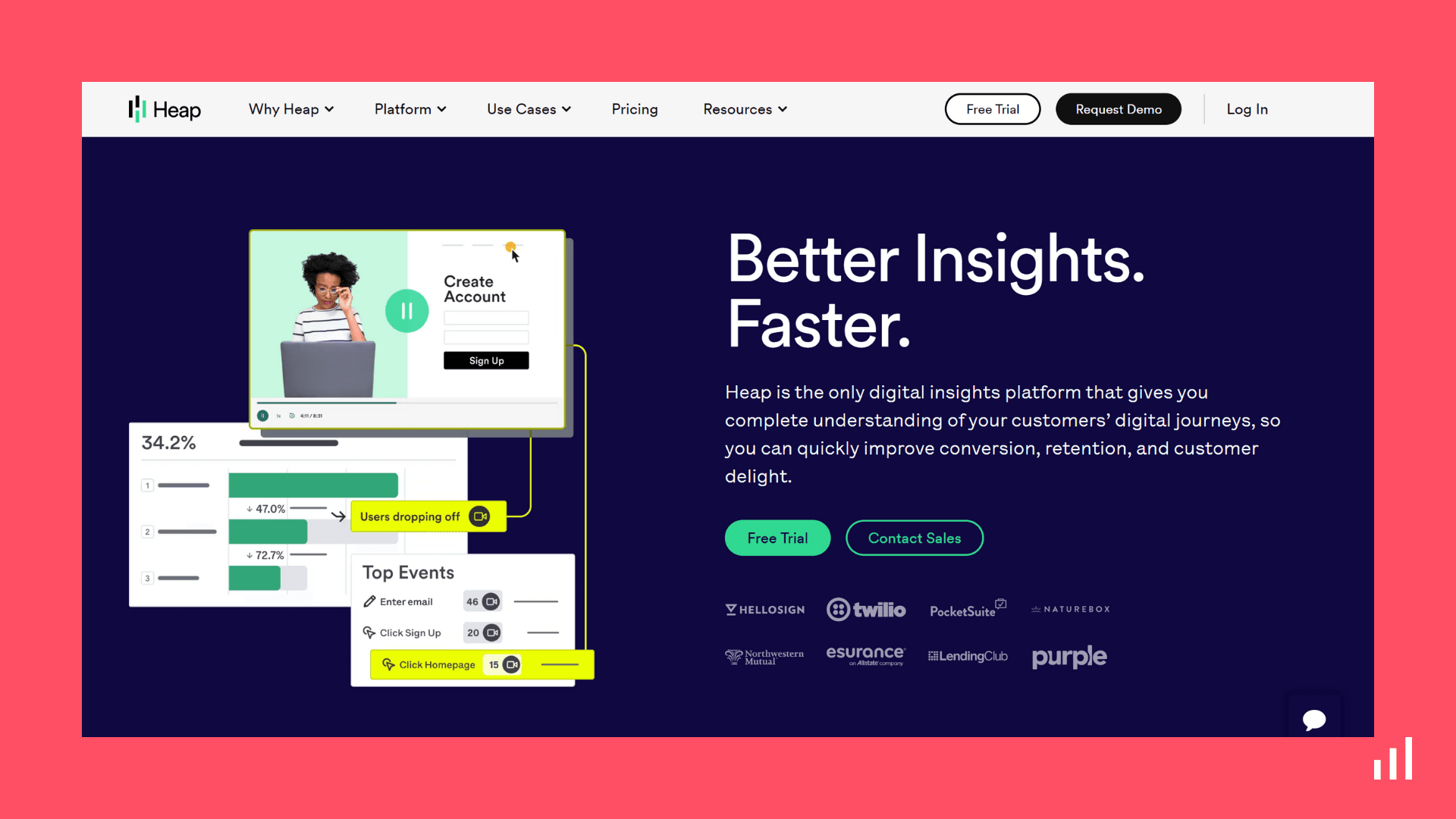
Pros
- Provides data enrichment
- Provides in-depth product analytics
Cons
- Can get overwhelming
- Expensive tool to use
Pricing
Heap is an enterprise-grade software tool with three paid plans, Growth, Pro, and Premier. The pricing isn’t publicly available on their website. However, some review sites say it starts at $3,600/year for 300K sessions/year (25K sessions/month).
Do note that the starting pricing doesn't contain all the features that Heap offers; you’d have to upgrade to a higher plan.
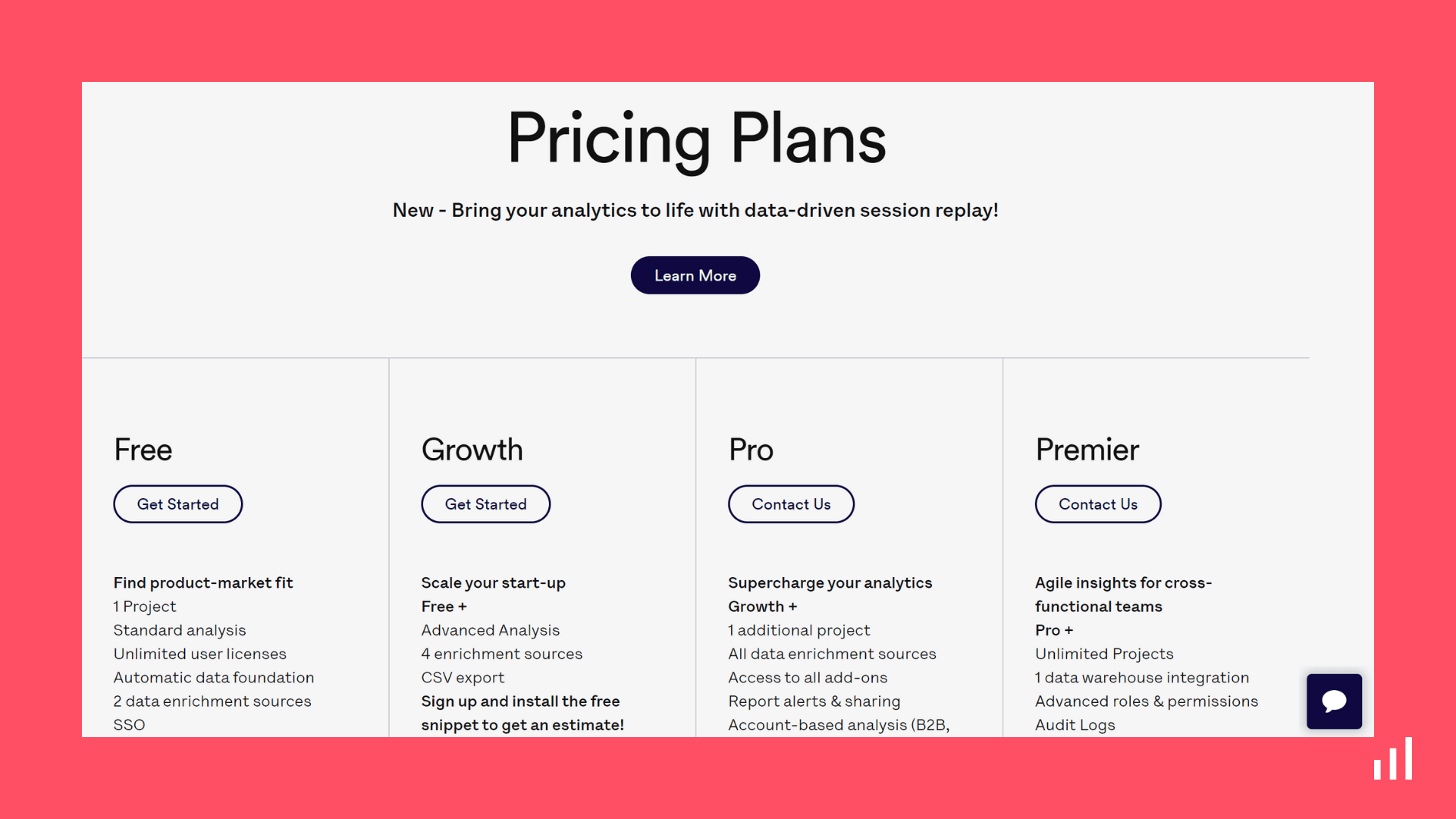
Snowplow
Snowplow is an open-source event analytics tool that collects and analyzes behavioral data and passes the same to business information tools, machine learning models, or for advanced data analytics.
It’s a complex tool specially built for large organizations to make data-driven product decisions at scale.
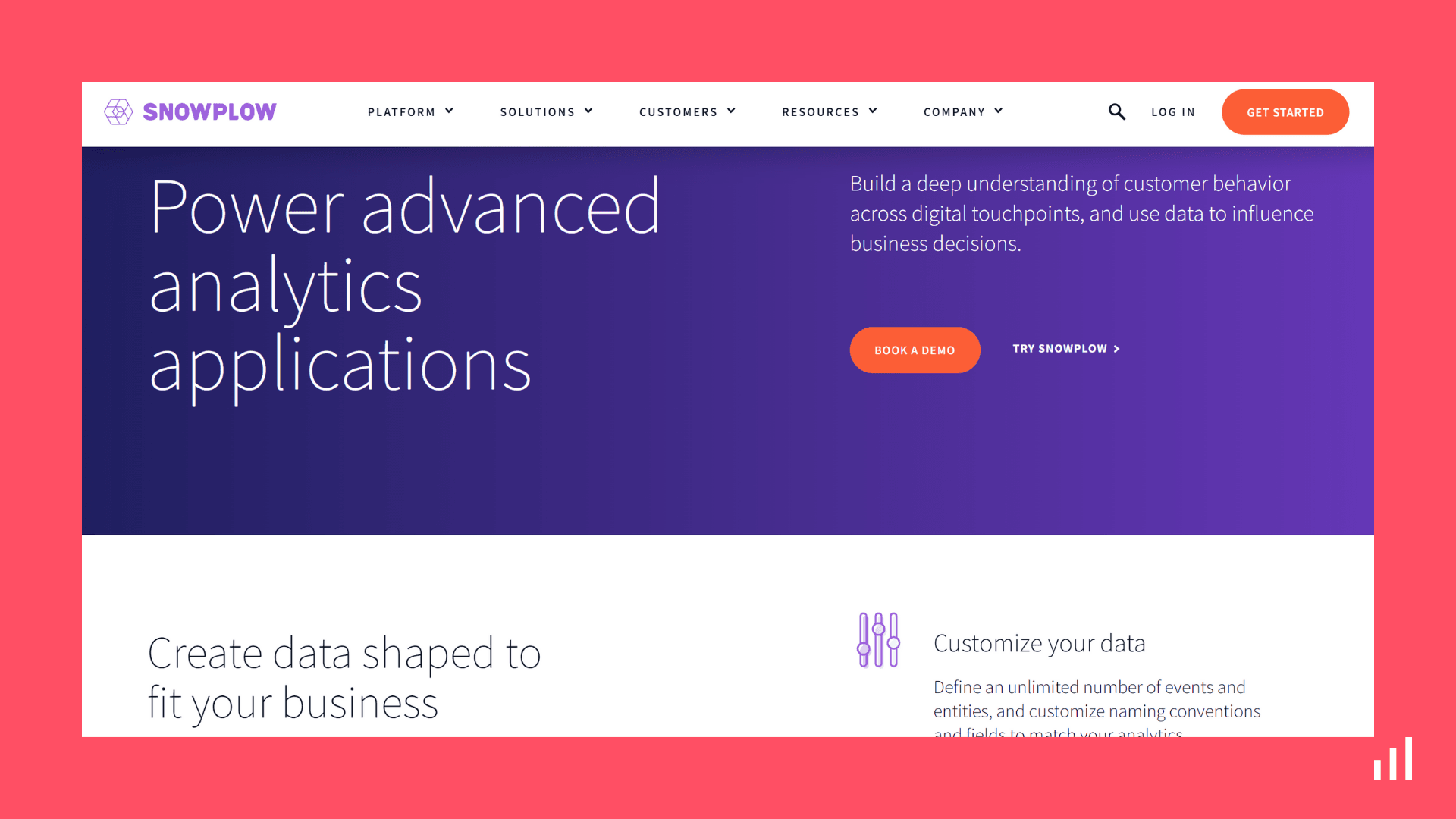
Pros
- Provides accurate data to make decisions.
- Solves the problem of understanding users at scale.
Cons
- Complex, and most users don’t have the resources to implement it
- Requires to be connected to other tools for a complete analytics
- Expensive tool
Pricing
Snowplow is an open-source tool, meaning you can self-host some parts, but their core behavioral data platform pricing starts at $800/month. This pricing might suit large-sized organizations but is unsuitable for most businesses.
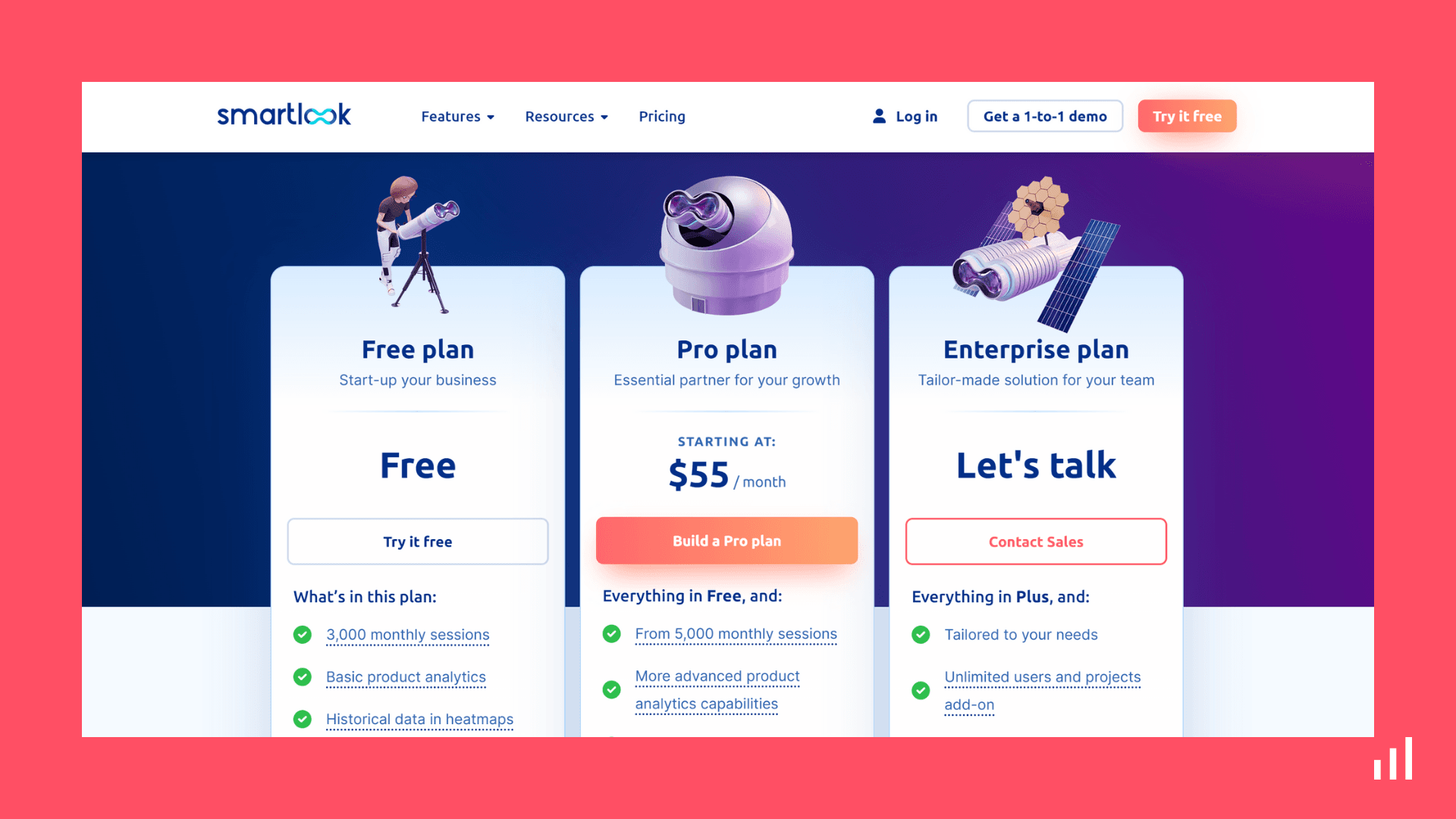
Smartlook
Smartlook is a product analytics platform that allows businesses to track user behavior and interactions on their websites and mobile applications. As a result, it provides insights that help companies to improve user experiences and conversion rates.
Also, Smartlook is in the process of being acquired by Cisco, which might bring lots of product changes soon.
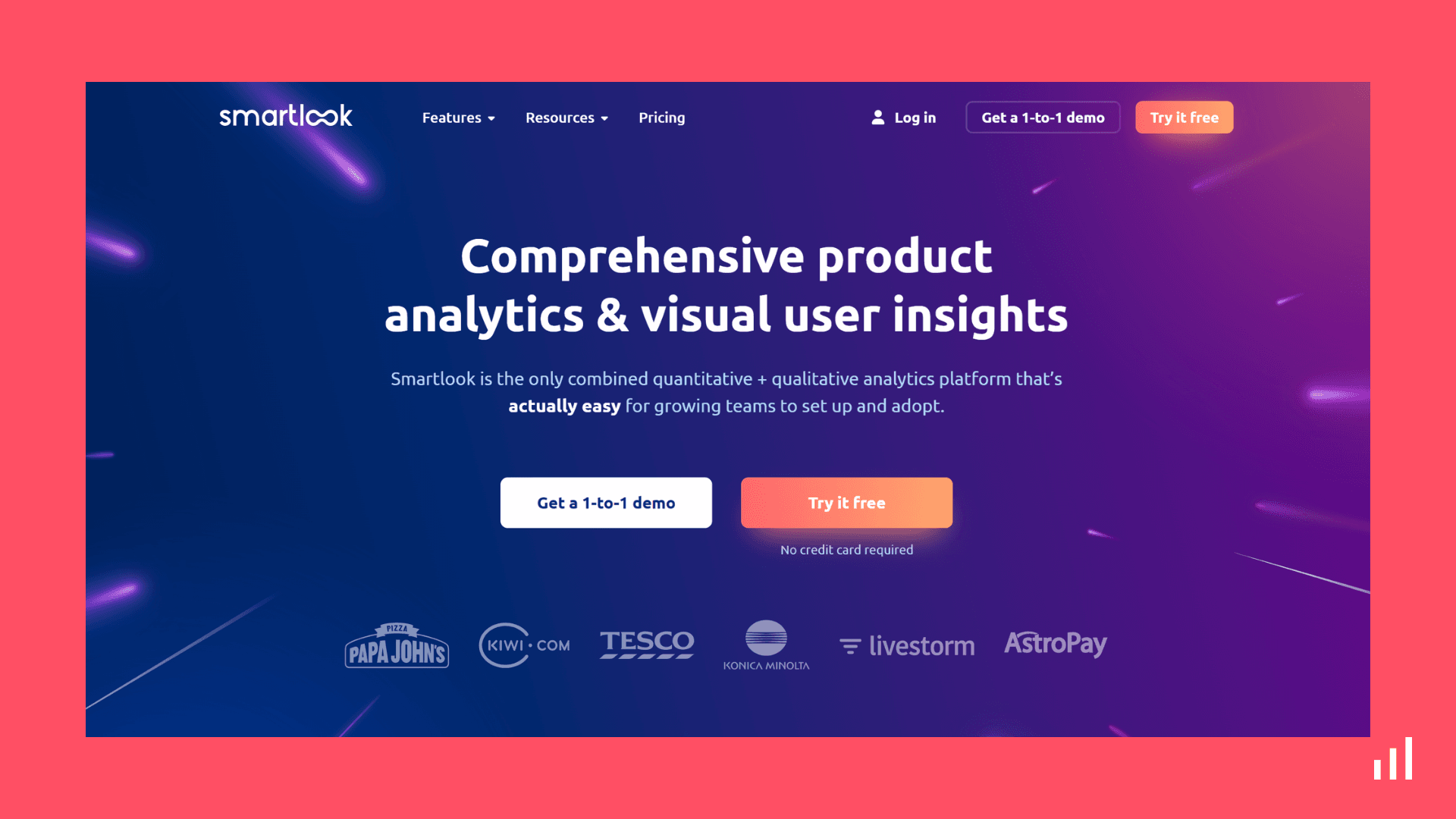
Pros
- Affordable pricing
- Provides additional features such as crash reports
Cons
- Pricing can be expensive for high-traffic sites
- Uncertain future as it’s in the process of being acquired
Pricing
Smartlook offers three pricing plans: a free plan with limited features, a pro plan that starts at $55/month, and an enterprise plan with private pricing.
Recently Cisco has shown intent to acquire Smartlook, which may affect their product pricing as Cisco might want to make it a more enterprise-focused tool.

Kissmetrics
Kissmetrics is a product analytics tool that primarily focuses on even analytics. The provided solutions mainly target the analysis of customer behavior. It also focuses on providing data discovery and visualization support on its platform and also tracks keywords. In addition, Kissmetrics is also used for funnel analysis and goal tracking.
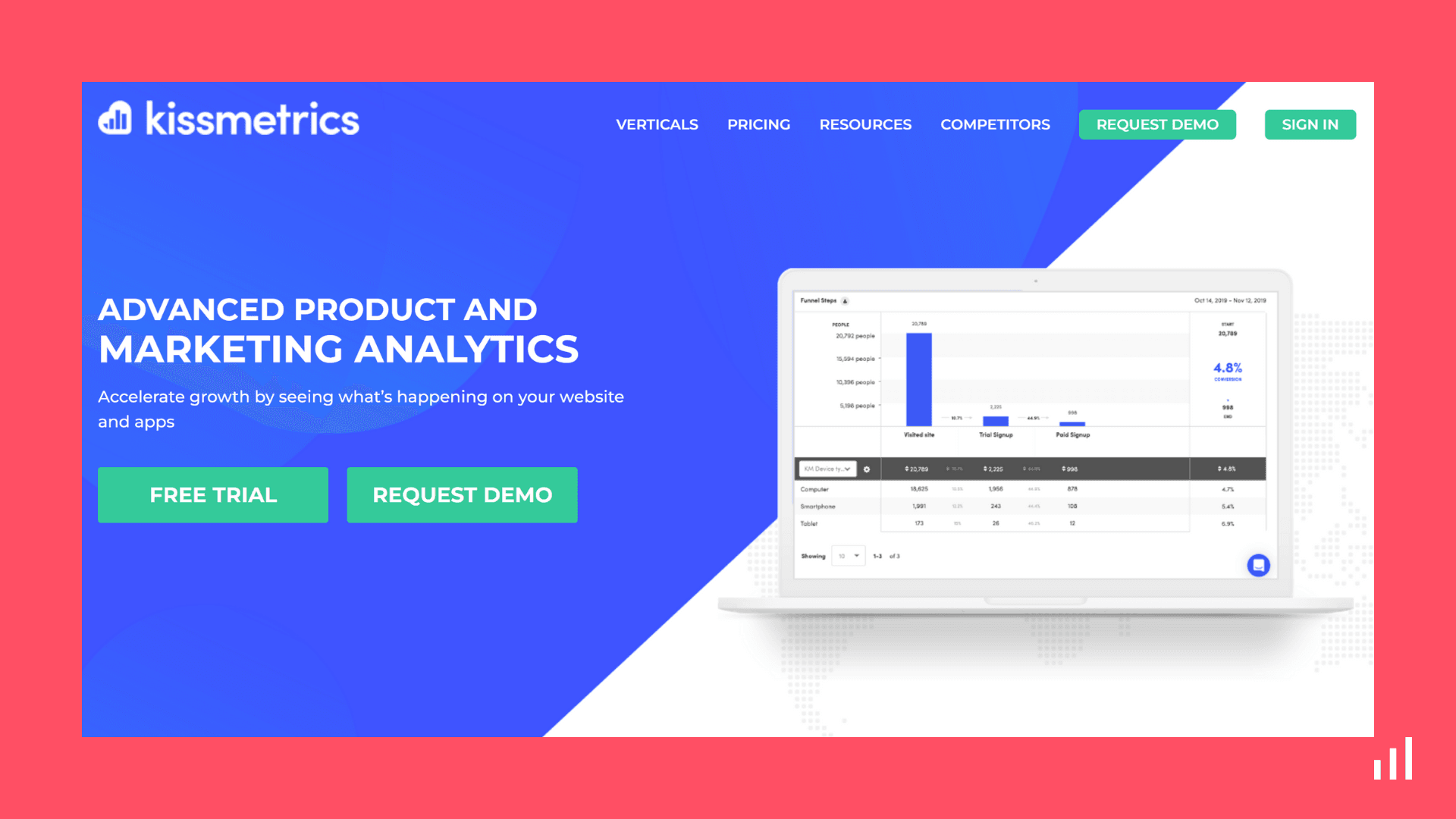
Pros
- Advanced tracking and segmentation capabilities
- Offers powerful automation and engagement tools
- Provides customer journey mapping and funnel analysis
- Easy to integrate with other platforms and tools
Cons
- It can be expensive for small businesses
- The steep learning curve for new users
- Limited reporting capabilities
Pricing
Kissmetrics offers three pricing plans: a Silver plan that starts at $299/month, a Gold plan that starts at $499/month, and a custom Platinum plan. Unfortunately, the price of the enterprise plan is private.
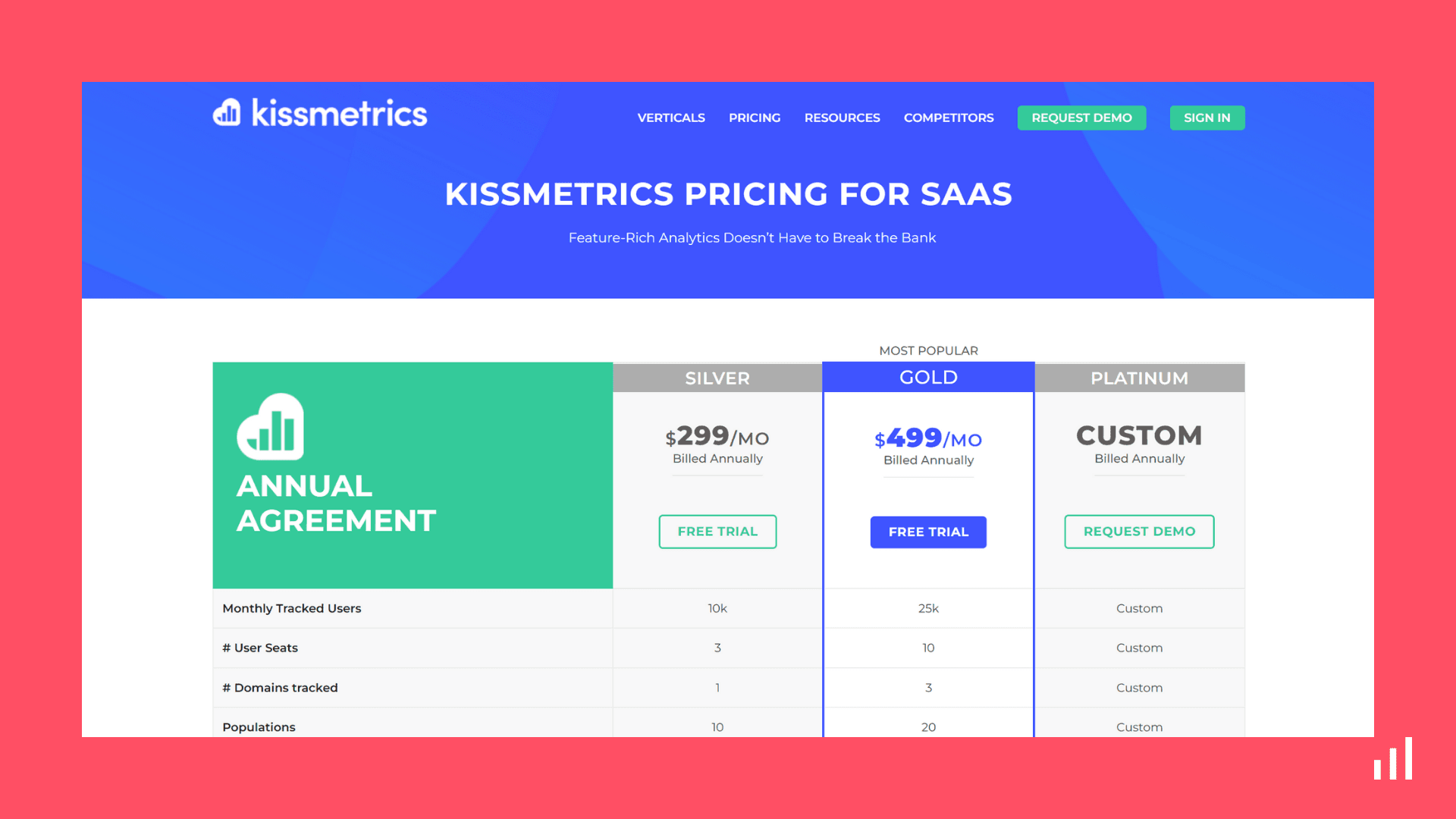
Woopra
Woopra is a customer analytics tool designed to track user journeys from start to end. The data provided by Woopra can be used to understand user journeys, analyze trends and improve user retention. It also comes with additional automation to help engage users in real time.
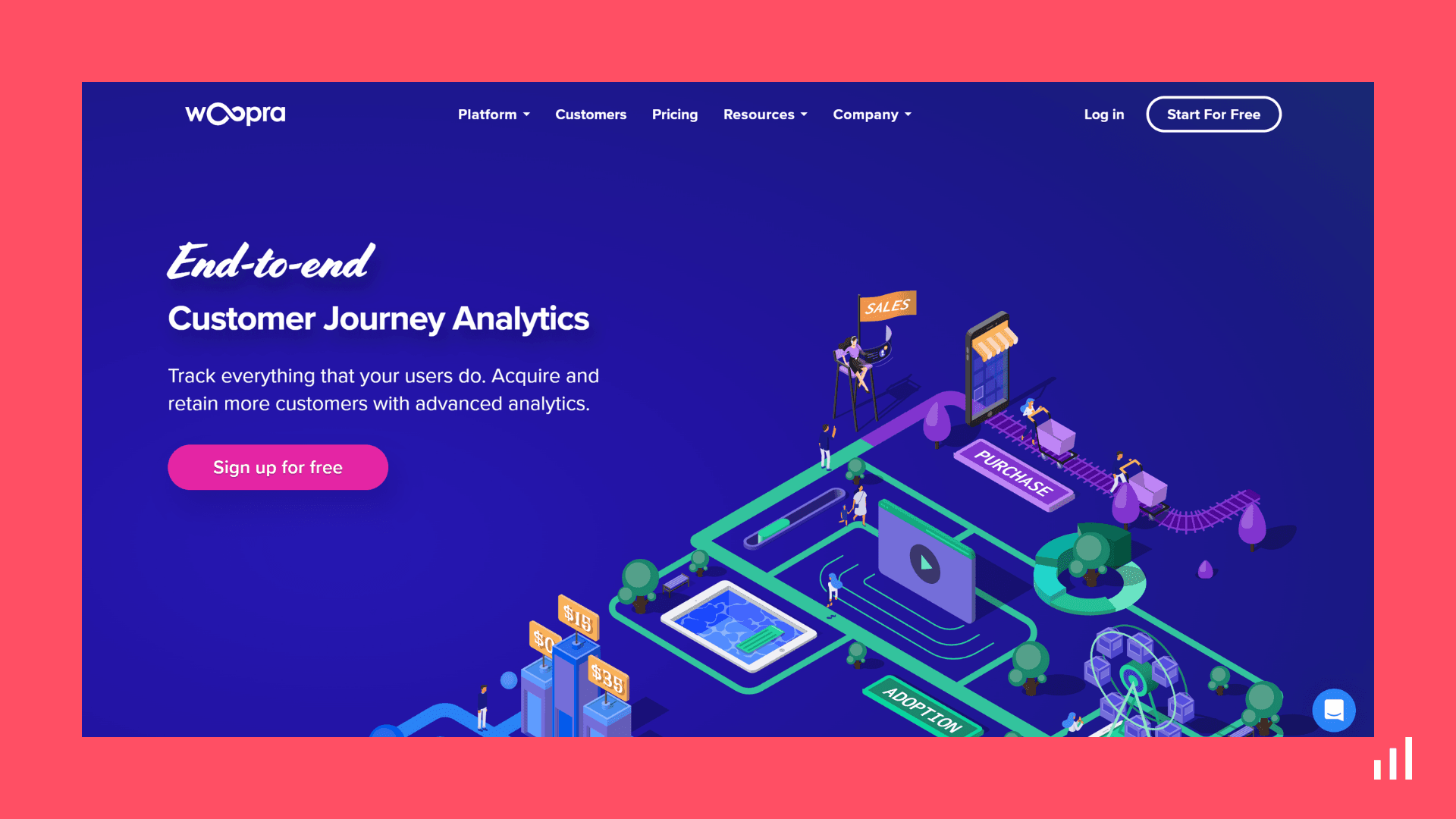
Pros
- Generous free plan
- Supports multiple single-click integrations
Cons
- Poor data retention policy
- Unclear GDPR compliance
Pricing
Woopra offers many plans with varying prices. It has a generous free plan, but if you move to the paid options, most will feel expensive. It starts with the pro plan for $999/month for 5 million actions in the Pro plan. The Enterprise plan goes beyond that, but its pricing is undisclosed.
You can contact the Woopra team and get a quote with pricing depending on the actions tracked per month. For companies requiring even more actions, tailored options are available.
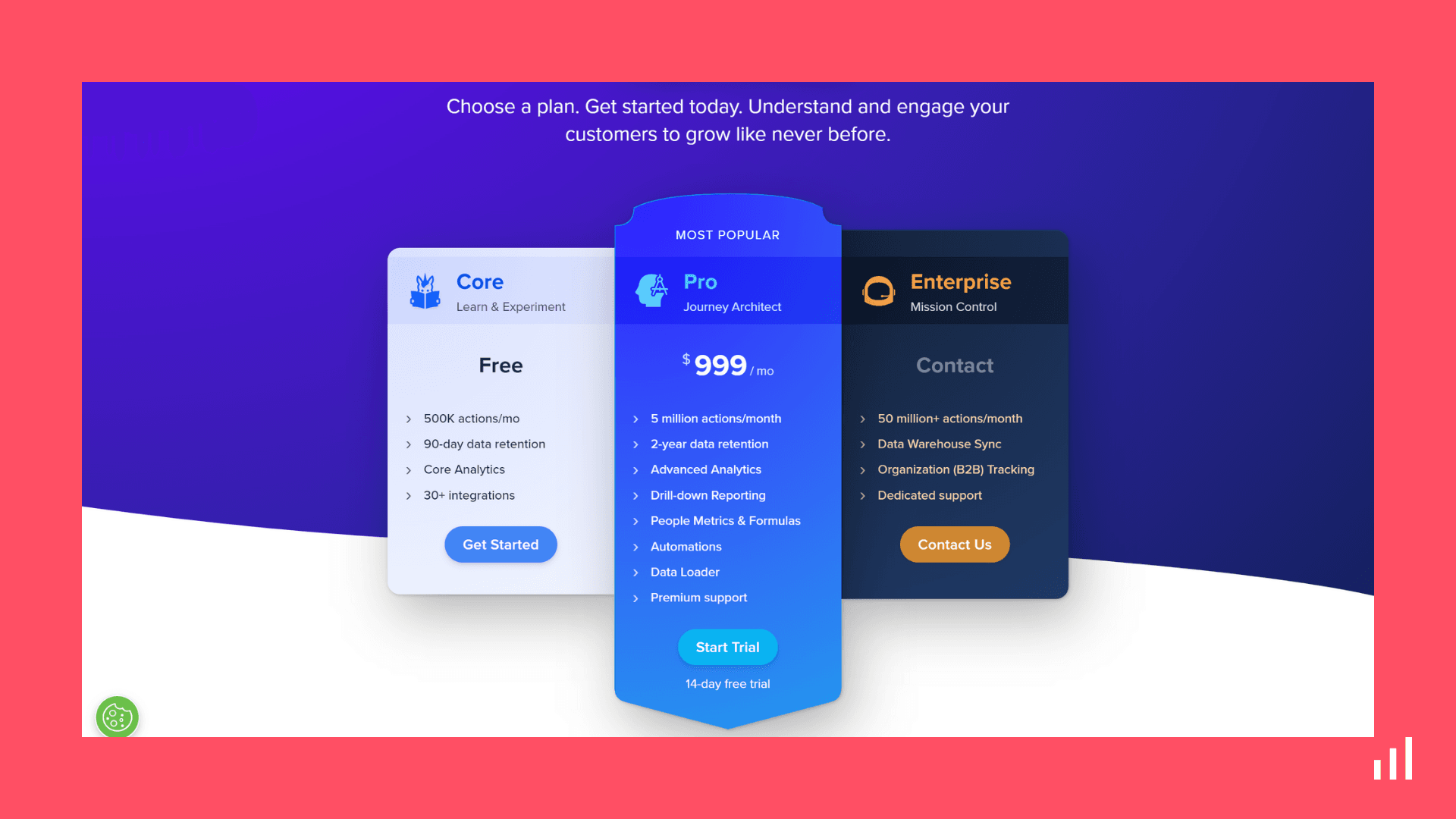
What to look for in an analytics tool
Selecting a tool for your analytics is a crucial decision. Be sure to go through this checklist before making a choice. You're good to go if the tool provides these:
Ease of Use: You shouldn’t spend your time on a complex web analytics tool that takes time and experience to get familiar with.
Accuracy: Getting an accurate picture of what’s happening on your website is important.
Straightforward UI: Most of the time, you don’t need 75 custom dashboards (looking at you, Google).
Lightweight: Installing an analytics script has an impact on your page speed. Choose an analytics tool that doesn’t slow your website down.
Privacy: The world is moving in a direction where privacy is becoming increasingly important.
Integration: Your analytics should be able to integrate with other tools.
Pricing: Consider the tool's pricing and ensure it aligns with your budget.
Although this checklist can assist you in getting started, there may be other factors for your organization that you need to consider.
Final Thoughts
If you want a tool that checks these boxes, then check out Simple Analytics. It provides the insights you need in a straightforward dashboard while being 100% GDPR compliant.
Want to see what that looks like? Check our public dashboard here
We believe the internet should be an independent place that is friendly to website visitors. By opting for Simple Analytics, you’ll be supporting us in our mission and protecting the privacy of your website visitors. If this resonates with you, feel free to give us a try.
